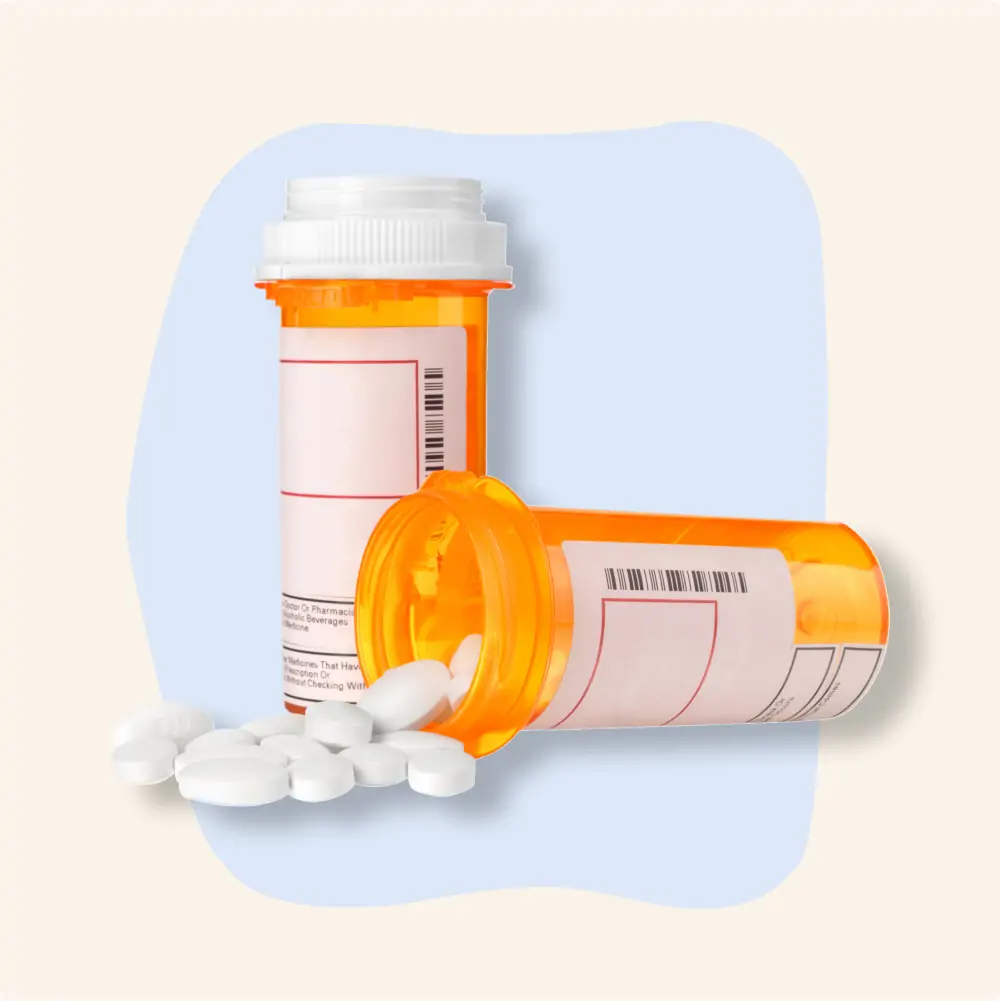
Minocycline is often prescribed along with topical acne treatment, such as benzoyl peroxide and retinoids. This combination approach works because it targets all the factors that cause acne such bacterial, inflammatory, and sticky skin cells. Using minocycline for acne treatment is an option for treating acne because it:
Kills the bacteria that causes acne.
Reduces redness and inflammation caused by acne.
Treats bacterial infections.
Get Minocycline for Acne delivered to your home with FREE shipping from Pandia Health! Get started
Minocycline is super easy to use! Take one to two capsules/tablets daily or twice a day, whatever your doctor prescribes.
If you are taking capsules, please take them with a FULL glass of water because there have been cases of the pills getting stuck in the throat.
The recommended minocycline dosage for acne typically ranges from 50 to 100 milligrams taken orally, once or twice a day.
The exact dosage and duration of treatment may vary depending on the severity of the acne. However in general, we do not recommend more than 3 months of antibiotics. Doctors try to limit the time to decrease the chance of antibiotic resistance.
It is important to follow the dosage instructions provided by your doctorl and not to take more than prescribed or for longer than recommended.
Generally, Pandia Health’s expert doctors recommend Doxycycline over Minocycline because of the potential side effects of: irreversible gray or hyperpigmentation skin lesions and increased risk of systemic lupus erythematosus, autoimmune hepatitis, and polyarteritGenerally, Pandia Health’s expert doctors recommend Doxycycline over Minocycline because of the potential side effects of irreversible blue-black or hyperpigmentated skin lesions and increased risk of systemic lupus erythematosus, autoimmune hepatitis, and polyarteritis nodosa usually after 1 year of use.
The risks are very low, but some people have experienced side effects when using Minocycline. Minor ones include black, tarry poo, nausea, vomiting, diarrhea, dizziness, lightheadedness, headache, vulvovaginal yeast infection, black tongue, dryness around the mouth, and sore throat. Contact your doctor if you experience these symptoms and they persist or worsen.
The chances of serious side effects are extremely unlikely, but STOP the medication ASAP and seek immediate medical attention (call 911 or go to the ER) if you experience any of the following symptoms: dizziness, rash, severe burning/swelling/ redness of the skin, itching/swelling (especially of the face/tongue/throat), trouble breathing, eye pain, chest pain, blurry or double vision, or hives.
When using minocycline for acne, be aware of the following:
Consult a doctorand follow their guidance when using minocycline or any other medication for acne treatment.
Buy NowPrescription Level Medication
FREE Delivery & Goodies
Board Certified Online Doctor Consults (Only $35)**For those using delivery services
Oral minocycline is an antibiotic that treats acne by stopping the growth of acne-causing bacteria and reducing inflammation. It is taken orally in the form of capsules or tablets and is effective against inflammatory acne.
Minocycline is an oral antibiotic used to treat a wide range of bacterial infections such as severe acne, skin infections, respiratory infections, urinary tract infections, and others.
Pandia Health’s expert doctors recommend allowing 2 weeks to see an improvement in your skin but give it 6 weeks for full effect. Do not stop the treatment if you don’t see your skin getting better right away, it will take some time for the antibiotic to start working. Don’t give up and always follow your doctor’s instructions. If you are not happy after the 8th week, speak with your doctor to get further advice.
The black-blue or hyperpigmented skin side effects can be permanent. That’s why our expert doctors recommend doxycycline instead of minocycline. While side effects of Minocycline are unlikely, the minor ones reported (nausea, vomiting, diarrhea, dizziness, lightheadedness, feeling spinning) usually disappear 48 hours after stopping the antibiotic.
You can stop the medication at any time if you are taking it for acne. Make sure you tell your doctor when you stop the medication. You may experience more acne after you stop = “rebound acne.”
It takes about 90 hours for minocycline to get out of your system completely.
No. Weight gain is not a commonly reported side effect of minocycline.
It’s possible. Depends on what is causing your acne. If it’s hormonal and you continue to have hormonal fluctuations, then yes. Acne can come back after using minocycline or any other acne treatment. The effectiveness of minocycline may vary from person to person, and some individuals may experience a recurrence of acne after discontinuing the medication.
Minocycline can react poorly when mixed with other medications or supplements, including (but not limited to):
It is important to inform your doctor about any medications or supplements you are taking before starting minocycline for acne and to follow their guidance regarding the use of other medications while taking minocycline.

We're here to make women's lives easier by providing a one-stop shop for recurring medications. Pandia Health brings convenient expert telemedicine care and medication delivery to you from the comfort of your home or wherever you may be. We specialize in women's health to provide affordable, convenient, and confidential access to telehealth and pharmacy services.
Get Started- Kennedy
“Amazing!! Cara has always taken care of me and responds quickly. She makes sure that I get my prescriptions right on time whenever I need them. Very impressive”
- Jackie
"Literally the best service I’ve used in comparison to other companies that I’ve used, their response time is immediate and they ship what I need so quickly I’ve had no problems!"
- Diamond
“This service was able to help me with my medication in a very fast manner less then 24 hours response time. Super convenient , will use them in the future."
- Abby
“It is so easy. Love that it just arrives at my door and I don't have to go to a pharmacy. Quiza is great help if you ever have any questions!"